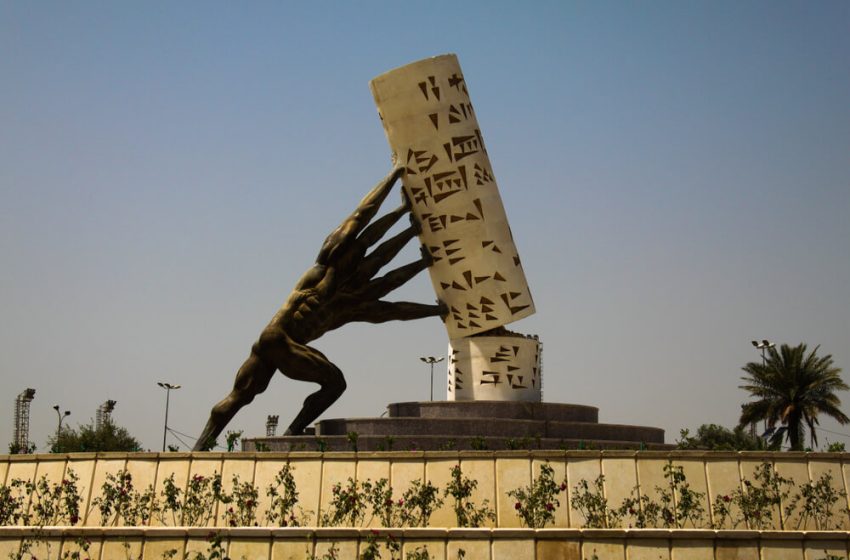Iraq’s economy expected to rebound with 8.7% GDP growth forecast

Saving Iraqi Culture, a monument located in the Mansour district of Baghdad, Iraq.
Baghdad (IraqiNews.com) – According to a recent World Bank report, Iraq’s economy has benefited from high oil prices, which have helped boost the country’s fiscal and external balance into double-digit surpluses. According to the study, Iraq Economic Monitor: A New Opportunity to Reform, after expanding by 2.8 percent in 2021, Iraq’s GDP will rise at a faster rate to 10.5 percent in the first half of 2022 because of higher oil production and a rebound in domestic economic activity following the epidemic.
The Iraqi government has received record oil income because of record oil exports, which have also increased global reserves to levels not seen in more than 20 years. However, the World Bank claims that some of the effects of global inflation have trickled down to consumers, which has a negative effect on lower income deciles’ consumption and raises import costs and food security concerns. The delays in forming the Iraqi administration influenced investment projects and the execution of economic reforms.

Iraq continues to be one of the most oil-dependent nations in the world despite several reform efforts. Iraq is highly dependent on oil, has a procyclical fiscal policy, and inadequately manages oil money, making it susceptible to fluctuations in commodity prices.
The World Bank predicts that despite the continued high oil prices, the worldwide demand would gradually decline, which will boost Iraq’s economic outlook. Iraq’s GDP growth is anticipated to go up to 8.7 percent in 2022, underpinned by non-oil industrial and services activities as well as high oil GDP growth of 12 percent.
Over the longer run, growth is anticipated to progressively slow as oil output is restricted by a more subdued global demand. Strong oil export revenues are anticipated to maintain considerable surpluses in the fiscal and external accounts if oil prices remain over $90 per barrel in 2022–24.

The economic picture is vulnerable to additional declines in global demand, insecurity, political unrest, and resurgent inflationary pressures. Growing food security threats and existing tendencies of poverty are exacerbated by rising food costs. Any further loss of buying power owing to inflation, ongoing energy and water shortages, and social instability risks would all be increased.
By exacerbating climate change shocks in both physical (temperature rise, water shortages, severe events) and financial dimensions, Iraq’s socio-economic vulnerabilities are further exacerbated. Iraq’s reliance on oil makes it susceptible to new economic dangers as the world moves toward a decarbonized environment, which would eventually reduce oil’s significant contribution to the world economy.
In October 2022, a new Iraqi government headed by Prime Minister Mohammed Shia’ Al-Sudani and President Abdul Latif Rashid took office. This provides an opportunity for Iraq to potentially implement reforms aimed at boosting economic diversity, addressing enduring structural problems, and combating climate change.
